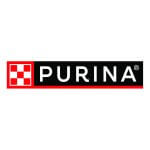Rabbits have a very complex digestive system, and making sure your rabbit is eating a proper diet is very important to your rabbit’s wellbeing. In fact, improper eating habits are closely associated with the most dangerous and common health problems in rabbits. Rabbit.org explains that rabbits, like many animals, naturally gravitate towards high calorie foods that are high in sugar or starch. Foods high in starch and sugars create a change in the pH of the cecum and eventually results in dangerous GI disease. A healthy diet consists of a variety of grass hay (80%), fresh vegetables (10%-15%), and good quality food pellets (5%-10%), all of which need to be given in proper proportions. Anything besides that should be considered a treat and given in limited quantities. Clean, fresh water needs to be available at all times, which can be dispensed in either a bottle or ceramic bowl depending on your rabbit’s preference.
Hay (80%)
The most important component of your rabbit’s diet is grass hay, rich in Vitamin A and D as well as calcium, protein and other nutrients. A diet of 80% hay can also act as preventative health care for your rabbit, promoting healthy teeth and a healthy digestive tract. Rabbits’ teeth continually grow approximately 12 centimeters a year, even their back ones. Overgrown teeth can cause many issues including eye problems, but the side-to-side motion from eating hay naturally grinds teeth from getting too long. Hay is also essential to a rabbit’s health by providing roughage which reduces the danger of hairballs. Despite regular grooming, rabbits lack the ability to cough up hairballs. Rabbits need to constantly snack on hay throughout the day to keep things moving inside and help prevent blockages, which can often be fatal. Apple tree twigs also provide good roughage but should be given as a treat and not a main food source.
You want to provide your rabbit with grass hay such as Timothy, Orchard, or Brome, and be sure to avoid legume hay like alfalfa or clover for adult rabbits. Alfalfa is like rabbit candy and contains too many calories, causes bladder stones, and puts a strain on the kidneys for an adult. However, young rabbits (under a year old) need additional energy and nutrients and should get alfalfa mixed in with their hay.
Offer your rabbit fresh hay every day, multiple times a day. Rabbit.org also recommends varying the type of grass hay or mixing grass hays together. A diversity of hay provides rabbits with small changes in smell and texture, resulting in good, consistent eaters. Different rabbits can like different kinds of hay, so be sure to take notice of your own rabbit’s preferences. Bagged hay is readily available at pet stores; however, you will go through a lot of hay in just a day or two. A more affordable option is to go to your local farm feed store and purchase a bale of horse hay (not straw) and store it upright in a large trash can. This will last a long time and save you money in the long run. Hay will last up to a year without losing any significant amount of nutrition as long as it is kept dry and out of the sun. Wet hay will mold, and sunlight decreases the nutritional value.
Pellet Food (5%-10%)
There are many brands and types of feed for rabbits, but the best brand for your rabbit is Oxbow, which is formulated with the proper vitamins and minerals for your new friend. High quality pellets are a minimum of 18% fiber and less than 2% fat. Look for food that is comprised of plain green pellets and avoid any added colorful pieces. These foods are intended to attract the human buyer, but the added pieces are not in the best interest of your rabbit’s health. Beware of foods that includes nuts, seeds, or other “treats” or colorful pieces as well as brands that use the term “gourmet”. They are usually very rich and high in fat, which can cause serious health issues for your rabbit. Variety in your rabbit’s diet should be provided by fresh vegetables and not extra ingredients in pellet food.
Besides high quality pellets, make sure not to overfeed your rabbit. Rabbits can easily become overweight if not fed the proper amount, which also leads to many health problems. For an adult rabbit, it is best to feed ¼ to ½ cup of feed per day. Rabbits under a year should be offered more since they are growing, but be sure they are eating a young rabbit formula rich that is in nutrients. You also do not want to buy a large amount of pellet food at once. Unlike hay, pellets will spoil after about 6 weeks.
Fresh Vegetables and Fruit (10%-15%)
Along with pellets and hay, your rabbit needs fresh vegetables and fruit daily. Fresh foods are an important part of your rabbit’s diet and they provide additional nutrients as well as different textures and tastes. Fresh foods are also more hydrating, which is good for kidney and bladder function. If you collect wild foods such as dandelion greens, make sure they are from a pesticide-free area and never give your rabbit grass cut by a lawnmower since chopped grass will ferment. Also try to purchase organic produce if possible, but regardless of the source, Rabbit.org advises that all fresh foods should be washed or scrubbed before being given to your rabbit.
The suggested daily amount of fresh food is 2 cups per 4-6 Ibs of your rabbit’s body weight. Introduce one new food every three days and keep a watch on the stools. Even root vegetables and fruits with high levels of sugars and starch could become a problem if fed in excess. Foods that are notorious for causing GI problems for rabbits are grains of any kind, legumes (beans, peas, etc), nuts and seeds, popcorn, garlic, potatoes, rhubarb, chocolate, and other “human treats.” Also avoid foods in the onion family such as leeks, chives, and onions since eating these foods could cause blood abnormalities. Watch your rabbit for weight loss, soft stool, or any other signs of trouble, and consult your veterinarian immediately if there are problems. It’s also a good idea to find a vet familiar with rabbits and have regular checkups, which can also help prevent obesity.
Leafy Greens
Feed your rabbit at least 3 types of leafy greens a day, and mix it up by rotating between different greens your rabbit will enjoy. Rabbits have a higher risk of calcium problems, so give your rabbit smaller amounts of high calcium greens. Reference the list below to help distinguish between low calcium and high calcium greens. Never feed your rabbit iceberg lettuce.
Low Calcium Greens (pick 2 out of 3)
Arugula
Carrot tops
Cucumber leaves
Endive
Escarole
Frisee Lettuce
Romaine lettuce
Kale (all types)
Mache
Spring greens
Turnip greens
Dandelion greens
Mint (any variety)
Basil (any variety)
Watercress
Wheatgrass
Chicory
Cilantro
Radicchio
Bok Choy
Fennel (top/base)
Borage leaves
Dill leaves
Yu choy
Raspberry leaves
High Calcium Greens (pick 1 out of 3)
Parsley
Spinach
Mustard greens
Beet greens
Swiss chard
Radish tops
Sprouts (from 1 to 6 days after sprouting)
Non-Leafy Vegetables (A recommended daily amount to feed your rabbit is about 1 tablespoon per 2 lbs of body weight).
Carrots
Celery
Bell peppers
Broccoli
Brussel sprouts
Cabbage
Broccolini
Summer squash
Zucchini squash
Edible flowers (roses, nasturtiums, pansies, hibiscus)
Fruits
Fruits can also be fed in small amounts and make great training treats! Feeding treats by hand is also a great way to develop a close bond with your bunny. Rabbit.org recommends feeding about 1 teaspoon of fruit per 2 lbs of body weight per day. Remember to feed your rabbit a lesser amount of dried fruits, which are about 3 times as concentrated as fresh fruit. Usually it is more nutritious to leave the skin on the fruit. However, remove the skin if you are concerned about chemicals.
Apple (without stem/seeds)
Cherries (without pits)
Berries (any type, uncooked)
Pear
Peach
Plum (without the pits)
Papaya
Apricot
Mango
Currants
Pineapple (remove skin)
Melons (can include peel and seeds)
Star Fruit
Nectarine
Kiwi
Banana (remove peel; no more than about 2 1/8 inch slices a day for a 5 lb rabbit)
For more information on treats and enrichment, check out our article: How to Keep Your Bunny Fun(ny).





Last Updated: May 26, 2022 by vbspcaadmin
What Rabbits Really Eat
Rabbits have a very complex digestive system, and making sure your rabbit is eating a proper diet is very important to your rabbit’s wellbeing. In fact, improper eating habits are closely associated with the most dangerous and common health problems in rabbits. Rabbit.org explains that rabbits, like many animals, naturally gravitate towards high calorie foods that are high in sugar or starch. Foods high in starch and sugars create a change in the pH of the cecum and eventually results in dangerous GI disease. A healthy diet consists of a variety of grass hay (80%), fresh vegetables (10%-15%), and good quality food pellets (5%-10%), all of which need to be given in proper proportions. Anything besides that should be considered a treat and given in limited quantities. Clean, fresh water needs to be available at all times, which can be dispensed in either a bottle or ceramic bowl depending on your rabbit’s preference.
Hay (80%)
The most important component of your rabbit’s diet is grass hay, rich in Vitamin A and D as well as calcium, protein and other nutrients. A diet of 80% hay can also act as preventative health care for your rabbit, promoting healthy teeth and a healthy digestive tract. Rabbits’ teeth continually grow approximately 12 centimeters a year, even their back ones. Overgrown teeth can cause many issues including eye problems, but the side-to-side motion from eating hay naturally grinds teeth from getting too long. Hay is also essential to a rabbit’s health by providing roughage which reduces the danger of hairballs. Despite regular grooming, rabbits lack the ability to cough up hairballs. Rabbits need to constantly snack on hay throughout the day to keep things moving inside and help prevent blockages, which can often be fatal. Apple tree twigs also provide good roughage but should be given as a treat and not a main food source.
You want to provide your rabbit with grass hay such as Timothy, Orchard, or Brome, and be sure to avoid legume hay like alfalfa or clover for adult rabbits. Alfalfa is like rabbit candy and contains too many calories, causes bladder stones, and puts a strain on the kidneys for an adult. However, young rabbits (under a year old) need additional energy and nutrients and should get alfalfa mixed in with their hay.
Offer your rabbit fresh hay every day, multiple times a day. Rabbit.org also recommends varying the type of grass hay or mixing grass hays together. A diversity of hay provides rabbits with small changes in smell and texture, resulting in good, consistent eaters. Different rabbits can like different kinds of hay, so be sure to take notice of your own rabbit’s preferences. Bagged hay is readily available at pet stores; however, you will go through a lot of hay in just a day or two. A more affordable option is to go to your local farm feed store and purchase a bale of horse hay (not straw) and store it upright in a large trash can. This will last a long time and save you money in the long run. Hay will last up to a year without losing any significant amount of nutrition as long as it is kept dry and out of the sun. Wet hay will mold, and sunlight decreases the nutritional value.
Pellet Food (5%-10%)
There are many brands and types of feed for rabbits, but the best brand for your rabbit is Oxbow, which is formulated with the proper vitamins and minerals for your new friend. High quality pellets are a minimum of 18% fiber and less than 2% fat. Look for food that is comprised of plain green pellets and avoid any added colorful pieces. These foods are intended to attract the human buyer, but the added pieces are not in the best interest of your rabbit’s health. Beware of foods that includes nuts, seeds, or other “treats” or colorful pieces as well as brands that use the term “gourmet”. They are usually very rich and high in fat, which can cause serious health issues for your rabbit. Variety in your rabbit’s diet should be provided by fresh vegetables and not extra ingredients in pellet food.
Besides high quality pellets, make sure not to overfeed your rabbit. Rabbits can easily become overweight if not fed the proper amount, which also leads to many health problems. For an adult rabbit, it is best to feed ¼ to ½ cup of feed per day. Rabbits under a year should be offered more since they are growing, but be sure they are eating a young rabbit formula rich that is in nutrients. You also do not want to buy a large amount of pellet food at once. Unlike hay, pellets will spoil after about 6 weeks.
Fresh Vegetables and Fruit (10%-15%)
Along with pellets and hay, your rabbit needs fresh vegetables and fruit daily. Fresh foods are an important part of your rabbit’s diet and they provide additional nutrients as well as different textures and tastes. Fresh foods are also more hydrating, which is good for kidney and bladder function. If you collect wild foods such as dandelion greens, make sure they are from a pesticide-free area and never give your rabbit grass cut by a lawnmower since chopped grass will ferment. Also try to purchase organic produce if possible, but regardless of the source, Rabbit.org advises that all fresh foods should be washed or scrubbed before being given to your rabbit.
The suggested daily amount of fresh food is 2 cups per 4-6 Ibs of your rabbit’s body weight. Introduce one new food every three days and keep a watch on the stools. Even root vegetables and fruits with high levels of sugars and starch could become a problem if fed in excess. Foods that are notorious for causing GI problems for rabbits are grains of any kind, legumes (beans, peas, etc), nuts and seeds, popcorn, garlic, potatoes, rhubarb, chocolate, and other “human treats.” Also avoid foods in the onion family such as leeks, chives, and onions since eating these foods could cause blood abnormalities. Watch your rabbit for weight loss, soft stool, or any other signs of trouble, and consult your veterinarian immediately if there are problems. It’s also a good idea to find a vet familiar with rabbits and have regular checkups, which can also help prevent obesity.
Leafy Greens
Feed your rabbit at least 3 types of leafy greens a day, and mix it up by rotating between different greens your rabbit will enjoy. Rabbits have a higher risk of calcium problems, so give your rabbit smaller amounts of high calcium greens. Reference the list below to help distinguish between low calcium and high calcium greens. Never feed your rabbit iceberg lettuce.
Low Calcium Greens (pick 2 out of 3)
Carrot tops
Cucumber leaves
Endive
Escarole
Frisee Lettuce
Romaine lettuce
Kale (all types)
Mache
Turnip greens
Dandelion greens
Mint (any variety)
Basil (any variety)
Watercress
Wheatgrass
Chicory
Radicchio
Bok Choy
Fennel (top/base)
Borage leaves
Dill leaves
Yu choy
Raspberry leaves
High Calcium Greens (pick 1 out of 3)
Spinach
Mustard greens
Swiss chard
Sprouts (from 1 to 6 days after sprouting)
Non-Leafy Vegetables (A recommended daily amount to feed your rabbit is about 1 tablespoon per 2 lbs of body weight).
Celery
Bell peppers
Broccoli
Cabbage
Broccolini
Zucchini squash
Edible flowers (roses, nasturtiums, pansies, hibiscus)
Fruits
Fruits can also be fed in small amounts and make great training treats! Feeding treats by hand is also a great way to develop a close bond with your bunny. Rabbit.org recommends feeding about 1 teaspoon of fruit per 2 lbs of body weight per day. Remember to feed your rabbit a lesser amount of dried fruits, which are about 3 times as concentrated as fresh fruit. Usually it is more nutritious to leave the skin on the fruit. However, remove the skin if you are concerned about chemicals.
Cherries (without pits)
Berries (any type, uncooked)
Pear
Peach
Plum (without the pits)
Apricot
Mango
Currants
Pineapple (remove skin)
Star Fruit
Nectarine
Kiwi
Banana (remove peel; no more than about 2 1/8 inch slices a day for a 5 lb rabbit)
For more information on treats and enrichment, check out our article: How to Keep Your Bunny Fun(ny).
Category: VBSPCA News
Search
Ways to Give
Annual Sponsors
To view our Donor Privacy Policy, click here.